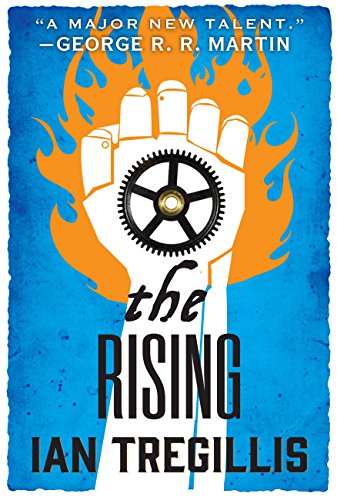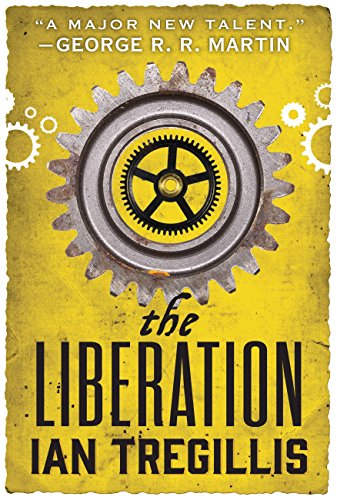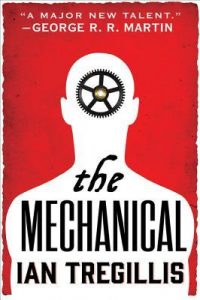

In The Mechanical, Ian Tregillis introduced a world in which the Dutch had found a magical/alchemical way to create robotic servants and soldiers that were much stronger and faster than any human and never tired. They had used these creatures to essentially conquer the world, with the exception of a remnant of France that struggled for survival in what they called “New France,” a colony of France in the Americas. What the Dutch never realized is that their creations were more than simple machines, they think and have their own wills, though those are subjugated to the demands of their Dutch masters in their creation. A few of these machines, called Clakkers, break free, becoming rogue. Really, this is their story.
In The Rising and The Liberation, the second and third book in Tregillis’ Alchemy Wars trilogy, the war between the French and the Dutch, and the consequences of one Clakker, Jax, gaining free will, are followed. The points of view shift between different characters, typically focused on three different perspectives in each book. The Rising is really focused on the last battle in the war between the Dutch and French, with the fate of the French civilization in the balance. But, a new power arises in the meantime and The Liberation follows that new development.
Without going into the plot, again Tregillis focuses on what it means to have free will, what having command of your choices means, and the cruelty that people can exert on one another. Some of the characters are truly vicious, some out of perceived necessity, others because that is inherent to their nature. I like that, in Tregillis’ world, things aren’t black and white. Characters nominally on the side of good act abhorrently, while others that might be thought of as evil do good deeds. They all have realistic motivations and often think they are doing what is best, even if that means being cruel to others. These aren’t superheroes that always make the morally best choice, they make the best choices to advance their survival or their cause, which are sometimes morally dubious.
If I have one quibble, the climax of the series is a bit abrupt and it isn’t quite clear what the characters were doing to make it happen. But, the rest of the story flows well, the characters are well developed, and the more philosophical aspects of the story form a great backdrop. There is a lot in this world that remains unexplored, including the fate of the other peoples of the world, which is only alluded to; the future of the Clakkers; and the real mystery about their creation. There is a lot of rich territory here that can be mined if Tregillis so desires.
This is a series I may well revisit again in the future.
